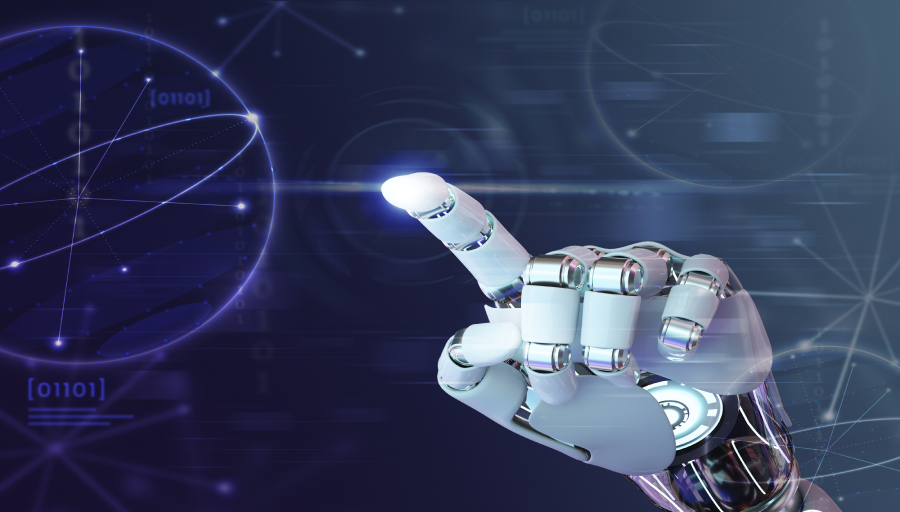When you consider the question, it seems to be fairly ironic. Is it possible that the creations—intelligent systems—will eventually replace or supersede their creators—programmers? Doesn't it seem like the storyline of a science fiction film? The most pressing issue, though, is this: Is it true?
According to recent research on the future of work, roughly half of all occupations in the United States are projected to be digitized by 2030. If we accept the findings as true, the near future does appear to be somewhat dismal. However, before you envision a doomsday scenario in which robots take over all of the human professions, consider how artificial intelligence (AI) assists programmers.
See also: Best Buy acquires U.K. Company Current Health
How Artificial Intelligence Assists Programmers
Even before the standard software development cycle begins, programmers must define the product's technical requirements, or features, and functionalities. They may then begin the real design and development process, which will include testing, implementation, and maintenance.
Naturally, progressing from one phase to the problems and gaps of the next show that must be addressed. Before every piece of software is launched, it must undergo multiple rounds of verification and improvement. The software development life cycle may be time-consuming, expensive, and boring. For humans, this may be aggravating. Programmers need assistance, which is where AI comes in.
1. Program Writing
Artificial intelligence technology enables programmers to detect flaws in their code as they are written. Ubisoft, a French creator of the software, is a pioneer in this field. It developed Commit Assistant, an artificial intelligence tool that checks for improper code using a software library of common coding faults seen in past projects. Thus, Commit Assistant protects programmers from repeating previous errors, so saving them time and effort when rectifying problems later in the process.
Additionally, intelligent programming assistants that give auto-complete recommendations while programmers type code are examples of AI technologies that simplify programmers' life. And why would programmers not take advantage of them? Let's face it, sifting through hundreds of pages of paperwork may be exhausting.
2. Bug Resolving
Numerous flaws in software become apparent only after it has been installed. That's rather typical, given how manufacturers often have to hurry to market in order to beat the competition. As a result, few applications are free of exploitable weaknesses.
This may be resolved using artificial intelligence (AI) and machine learning (ML) methods. They may set computers to scan programs for faults and correct them before release.
3. Accurate Estimation of Project Delivery
Software development initiatives almost never adhere to the timeframes and budgets established before they begin.
However, with the assistance of AI, programmers (or, more correctly, their project managers) can present management with more realistic timelines and financing needs, while taking into account all conceivable situations and probable obstacles.
Is AI Capable of Coding?
The short and nasty answer is yes. One such system is named "GPT-3," and it is a descendent of what was labeled the "world's most deadly AI," GPT-2.
On 13 July 2020, researcher Sharif Shameem stated that he utilized GPT-3 to layout a web page just by providing descriptions. These were converted to JSX code using GPT-3. JSX is a syntactic addition to JavaScript (JS) that enables the development of websites using React, an open-source JavaScript (JS) toolkit for creating user interfaces (UIs) or their components.
While GPT-3 is capable of coding in a variety of languages (for example, Cascading Style Sheets [CSS], JSX, and Python), it, like any freshly built program, still has a number of problems. One of them is that the code generated by GPT-3 may be useless. Additionally, it makes mistakes that are very difficult to remedy without the assistance of people. For instance, trivial and elementary mathematics queries like "What number comes before a million?" will be responded by GPT-3 with "Nine hundred thousand and ninety-nine."
See also: Could Apple AirPods become hearing aids?
Can Artificial Intelligence Systems Take the Place of Programmers?
Retorting to the primary topic, "Can AI systems take the position of programmers?" For the time being, software engineers globally can take a deep breath. The crucial problem is: Not always.
Although AI tools capable of writing rudimentary code currently exist, they lack the ability to prioritize features or recognize the issue that a piece of software under development would answer.
For the time being, only an exceptionally gifted programmer can create code based on a thorough comprehension of exact specifications and needs. And, as the example demonstrates, only programmers can now make sense of perplexing problems with no definite solutions or several plausible ones.
Indeed, what researchers originally predicted—that the function of programmers would only evolve as AI systems improved—remains true. Instead of creating code, they would be responsible for evaluating and curating data that will be used as input variables to AI algorithms that would eventually produce software.
Thus, will AI eventually replace programmers? No, it will not, at least for the time being. However, programmers should be mindful of emerging technologies like GPT-3, that are capable of rapidly producing computer programs without the need for coding. Software developers may easily provide parameters and components that will be used to prime or prepare the application. While the aforementioned AI requires more refining, especially in terms of priming, it has the potential to relieve programmers of several jobs.
Rather than providing a bleak picture, programmers should definitely embrace the positives of AI. Numerous sectors have already embraced the technology in order to boost production and save expenses. Because the tendency is unavoidable, they would be wise to develop their skill sets in order to adapt to the changing terrain.
Featured image: Design photo created by rawpixel.com - www.freepik.com
Subscribe to Whitepapers.online to learn about new updates and changes made by tech giants that affect health, marketing, business, and other fields. Also, if you like our content, please share on social media platforms like Facebook, WhatsApp, Twitter, and more.

